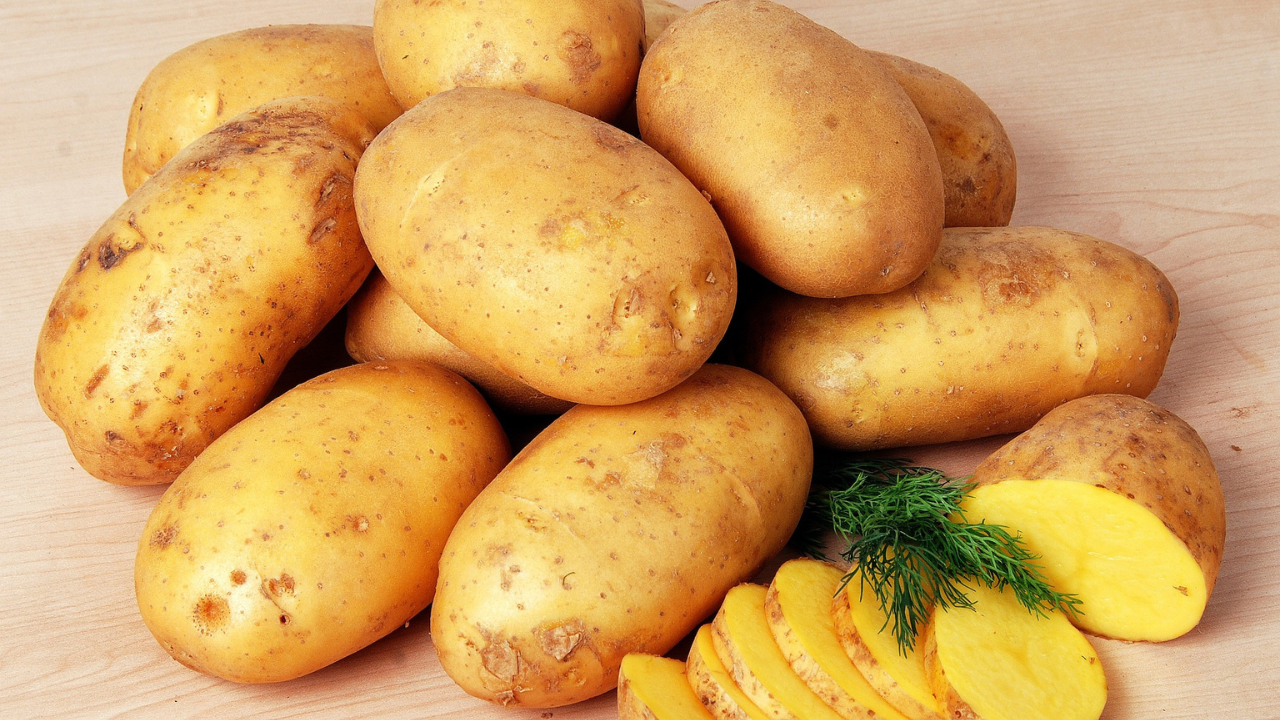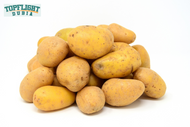Can Bearded Dragons Eat Potatoes? TopFlight Dubia Answered
Posted by William King on Apr 5th 2024
Bearded dragons are excellent reptilian pets and are some of the most commonly preferred exotic pets due to their gentle temperament and healthy diet plan.
They become more familiar and friendly with you once you feed them healthy food. Of course, some questions may arise in responsible pet owners: about what sort of foods they can consume safely. Can beardie eat potatoes?
In this detailed guide from TopFlight Dubia, you will learn everything you want about feeding potatoes to your bearded dragon. Let’s find out together.
Can They Eat Potatoes?
The short answer is YES but with certain limitations.
Even though potatoes are not toxic to bearded dragons, they are not ideal for them.
Potatoes are root crops with prohibitive carbohydrates, which can cause problems if incorporated into the daily diet of bearded dragons.
Nutritional Value of Potatoes
Here’s the nutritional breakdown of potatoes per 100 grams:
Calories: 77
Carbohydrates: 17.5 g
Protein: 2 g
Fat: 0.1 g
Calcium: 12 mg
Phosphorus: 40 mg
Vitamin C: 19.7 mg
Although potatoes contain minute amounts of vitamins, they have a poor calcium-phosphorus ratio.
Why Potatoes Are Not Ideal Diet For Bearded Dragons
Low Nutritional Value
Potatoes do not have other nutrients like calcium, fiber, and proteins, which are essential for the good health of your dragon. They may give some energy, but due to their low value of vitamins and minerals makes them a bad fit.
Improper C:P Ratio
The ideal calcium-to-phosphorus ratio is 2:1. High consumption could lead to metabolic bone disease(MBD), a critical disease that harnesses bones and affects mobility.
High Starch Content
Potatoes are rich sources of carbohydrates and starch. Consuming daily leads to obesity and complications in the digestion system.
Potential Digestive Issues
Bearded dragons are very sensitive to their digestive tracts. Potato starch can challenge their systems, leading to bloating, constipation, or diarrhea.
How To Feed Potatoes
If a pet owner has decided to feed the bearded dragon, then serve it with caution:
01. Choose Organic Potatoes
Choose organic potatoes so your pet does not get in touch with hazardous pesticides or chemicals.
02. Cook The Potato
Fresh tubers like raw potatoes can be challenging for bearded dragons to break down. To avoid this, boil or steam the potato without adding salt, butter, or spices.
03. Peel The Skin
The potato's skin is also very hard and often is potentially poisonous for your beardie. Before using the potato, the skin of the potato must be removed.
04. Serve In Small Portions
Chop the cooked potato into small pieces to prevent your dragon from choking while feeding. This should only be served in small quantities and prepared for occasional consumption.
Does Bearded Dragon Eat Potatoes In The Wild?
In the wild, bearded dragons do not eat potatoes. They rely primarily on green vegetables and insects, such as Dubia roaches.
Alternatives To Potato
If you’re looking for safe, nutritious options to feed your bearded dragon, here are some alternatives:
Vegetables
|
Collard Greens: Rich in calcium and vitamins. Dandelion Greens: Good source of calcium and fiber. Butternut Squash: High in vitamin A. Bell Peppers: A high dose of vitamin C replenishes the body’s fluid balance. |
Fruits
|
Blueberries: Contain low sugar content and have a high antioxidant level. Strawberries: Sweet and safe in moderation. Mango: Rich in vitamins A and C. |
Insects
|
Dubia Roaches: Contains high protein and calcium and is therefore suitable for everyday diet. Crickets: Yet another staple insect for the bearded dragons to get a bite on. Mealworms: Acceptable only in moderation because they contain high amounts of fats. |
Tips To Properly Feed
To ensure your bearded dragon stays healthy, follow these dietary guidelines:
01. 70% Greens and Vegetables
Live plants, especially those containing high amounts of calcium, must be fed to adult bearded dragons. Juveniles may need even higher protein.
02. 30% Protein
Include insects like Dubia Roaches, crickets, or mealworms.
03. Fruits and Occasional Treats
Vegetables rich in sugars, fruits, and starchy foods such as potatoes should not be consumed daily.
04. Calcium and Vitamin Supplements
Add calcium powder with vitamin D3 to dragon’s food to give normal working bones and avoid MBD.
NOTE
There are some signs that a responsible pet owner must look for:
- Lethargy or lack of energy
- Loss of appetite
- Weight gain or bloating
Joint pain, stiffness or numbness, and confined or enlarged extremities (signs of MBD).
Contact a veterinarian immediately if your reptile exhibits any of these symptoms.
Conclusion: TopFlight Dubia Final Decision

Bearded dragons can eat potatoes, but only occasionally. Precautions must be taken while feeding potatoes to your beardie.
A proportional diet of greens, vegetables, live insects, and fruits, occasionally with potatoes, will keep your exotic pet's health intact.
Understanding what your bearded dragon should eat will go a long way to making your pet happy and healthy.

